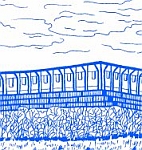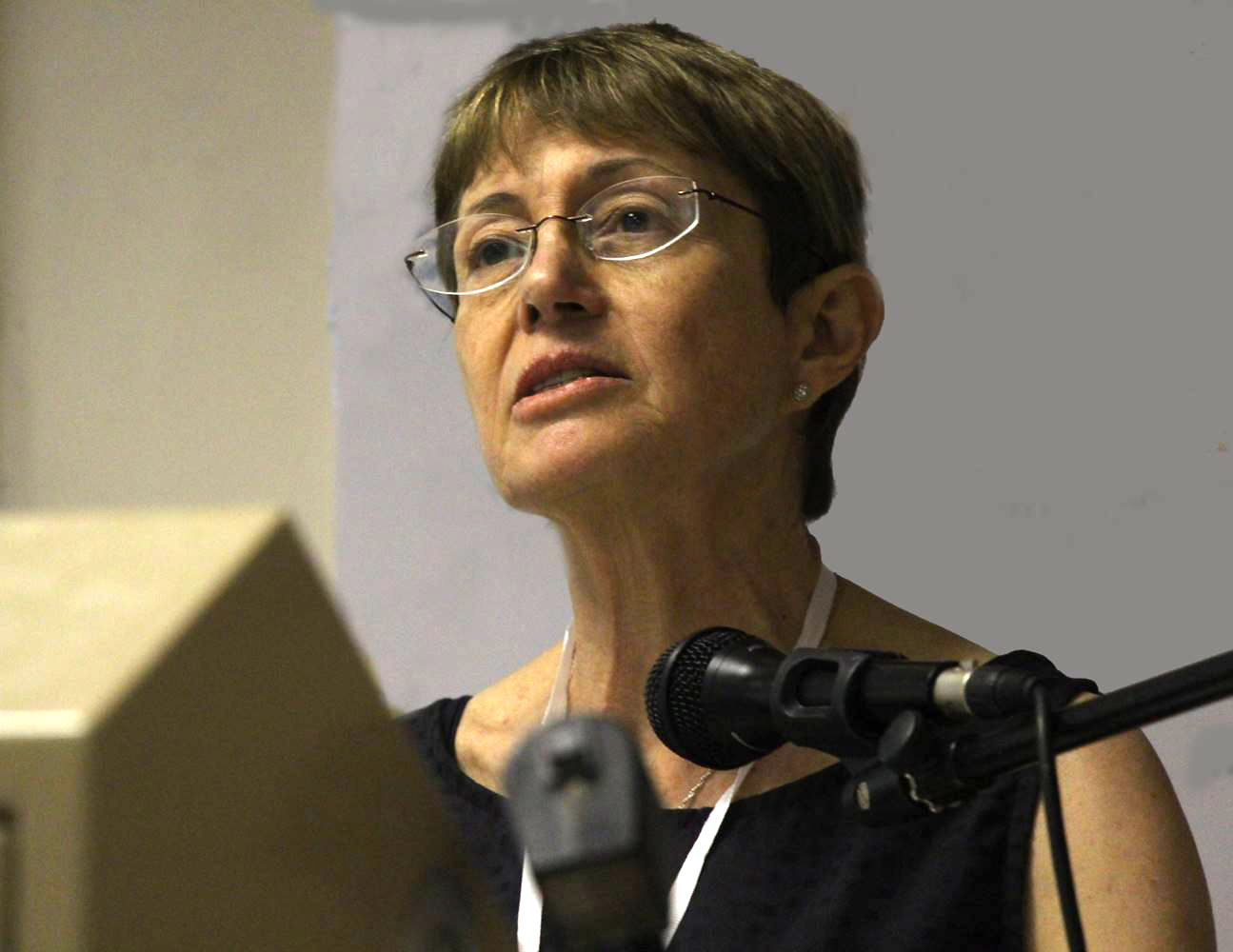ISF Center of Excellence “Looking beyond the Crisis of Democracy: Patterns of Representation in Israeli Elections”
The ISF-funded (2018-2022) Center of Excellence focuses on patterns of representation and elections in Israel. It was prompted by the ‘crisis of democracy’  diagnosis, apparent in Israel as in other democracies for several decades. We ask whether we witness the end of representative democracy, as numerous scholars argue, or rather a vital change in the manifestations of representative democracy. Our study draws on Hanna Pitkin’s classic multi-dimensional conception of political representation as substantive, formalistic, descriptive, and symbolic. We move to study representation patterns – so as to cover concurrently all dimensions; across the three major actors (citizens, media and political elites); and dynamically, as a reciprocal process over time.
diagnosis, apparent in Israel as in other democracies for several decades. We ask whether we witness the end of representative democracy, as numerous scholars argue, or rather a vital change in the manifestations of representative democracy. Our study draws on Hanna Pitkin’s classic multi-dimensional conception of political representation as substantive, formalistic, descriptive, and symbolic. We move to study representation patterns – so as to cover concurrently all dimensions; across the three major actors (citizens, media and political elites); and dynamically, as a reciprocal process over time.
Our focus on elections stems from their status as the foremost institution of representative democracy, the locus of ‘the crisis’, where the dynamic process of representation is exercised by all participants in the most intensive and concentrated manner.
The research center is built on three subprograms: The Israel National Election Studies subprogram (INES) investigates elections in Israel since 1969, and concentrates on citizens’ preferences and perceptions of representation, alongside their disaffection with politics and political behavior. The Computerized Monitoring and Content Analysis of Discourse subprogram uses Big Data to study representation patterns of candidates and political parties, voters in social networks, and media coverage of the elections. The Political Communication subprogram focuses on the direct communication between citizens and politicians, introduced by Web 2.0, and its effect on representation patterns and their dynamics.
Based on the analytical framework of representation patterns that was developed jointly, we now study:
- these representation patterns within the citizenry, in the media an in the political elite discourse;
- how citizens’ perceptions of representation have evolved during this period and how they relate to their support for democracy;
- how these patterns form and crystallize in the dynamic process between citizens, the political elite, and the media in each of the two Israeli national elections in April and September 2019, and all the way through this turbulent political year.
Further down the road we will also
- analyze the dynamics of the representation process over the long-run, beyond single elections;
- their implications for the ‘crisis of democracy’ diagnosis;
- and contemplate applied tools to increase actual representation and perceptions of representation.
PIs: Michal Shamir (Project coordinator), Shira Dvir-Gvirsman, Tamir Sheafer, Shaul Shenhav, Israel Waismel-Manor
Post-Doctoral fellow: Liron Lavi
Israel National Election Studies (INES) 2019-2020
 The 2019-2020 INES covers three Knesset elections: the election for the 21st Knesset held on April 9, the election for the 22nd Knesset, held five months later on September 17, and the election for the 23rd Knesset (March 2, 2020). Following the April election, the incumbent Prime Minister Benjamin Netanyahu obtained the mandate to form a coalition government, but failed to do so. He did not return the mandate to the President, and the Knesset voted to dissolve itself and lead to a new election, which was held on September 17. The efforts to construct a coalition government following this election failed as well, and the Knesset was dissolved on December 11, 2019, leading to the March 2020 election.
The 2019-2020 INES covers three Knesset elections: the election for the 21st Knesset held on April 9, the election for the 22nd Knesset, held five months later on September 17, and the election for the 23rd Knesset (March 2, 2020). Following the April election, the incumbent Prime Minister Benjamin Netanyahu obtained the mandate to form a coalition government, but failed to do so. He did not return the mandate to the President, and the Knesset voted to dissolve itself and lead to a new election, which was held on September 17. The efforts to construct a coalition government following this election failed as well, and the Knesset was dissolved on December 11, 2019, leading to the March 2020 election.
The study investigates voting behavior; evaluations of parties, candidates, and coalitions; perceptions of representation and democracy; efficacy, political knowledge, media consumption; and attitudes on various issues on the national agenda.
The survey data and accompanying materials are being placed on the INES site for public use as soon as they are completed and organized.
Election Interpretation – What Were The Elections About?
This joint project with Jacob Shamir and Liron Lavi is about election interpretation: How do we interpret the outcome of an election? Elections are a prime topic of research for political scientists, however the bulk of the studies focus on what happens before the elections. Thus, we know much about voting behavior and election campaigns, but we know much less about the post-electoral interpretation: what the elections mean, how the meaning of election outcomes is constructed, whether the public sees it like the political community, what affects election interpretations, what produces mandate election interpretations, and what impact the ‘conventional wisdom’ about the election has on politics. These are the questions we tackle in this project.
Elections are the main instrument of democracy and constitute a political institution of great consequence. Therefore how an election is interpreted matters. The meaning of an election is however indeterminate: voting is a low-information form of participation, and so is the aggregation of the vote into the election outcome. This leaves much room for interpretation of election outcomes, and is the basis for a struggle over it within the media and political community. Election interpretation is a social construction, constructed as a joint venture mainly by the media and politicians within days of the election. This conventional wisdom regarding the election is a climate of opinion, shared by the political elite, the media and citizens; and it may not be the same as what the voters had in mind when they voted, nor necessarily the same as what the election campaign featured.
We introduce and develop the concept of election interpretation, place it in the context of democratic politics, propose ways to measure it, and analyze its dimensionality and manifestations. We develop a theory of its social construction and the constraints upon this process at the macro level, at the mid-level of political communication and at the micro-level of the individual voter; and we establish its political repercussions.
Our exploration cuts across the fields of political communication, political psychology, public opinion and electoral studies. Our empirical analysis combines quantitative and qualitative analysis. It comprises of a longitudinal multi-level analysis of the Israeli national elections; of focused comparisons of elections in the U.S. and Israel; of in-depth interviews with political actors and voters; and of a comparative analysis of election surveys in several countries.
Democracies Under Threat From Terrorism: The Dynamics Of Political Tolerance In Israel
This joint research project with Mark Peffley and Marc Hutchison addresses a critical question for the resilience and the very survival of democracies: what is the impact of terrorist attacks over time on democratic publics’ commitment to democratic values and institutions.
Israel is an excellent case for examining this question longitudinally, with sharp ups and downs in terrorist attacks and relevant available survey data over several decades. We investigate how persistent terrorist attacks erode public support for political tolerance—i.e., granting basic civil liberties and political freedoms to one’s domestic enemies. We study the Jewish majority’s political tolerance of Arabs and of least-liked groups overtime, as well as the diffusion of intolerance to “fellow travelers” of the perpetrators of terrorism. Based on intergroup threat theory and social identity theory we concentrate on the level of terrorism, on the ideological leaning of individuals, and on the degree to which domestic outgroups are demographically or politically associated with terrorist groups.
Our empirical analysis relies on multilevel multivariate models covering terrorism and tolerance data over a 30-year period. Indeed persistent terrorist attacks erode support for democratic values in the short term, however over the long-haul tolerance increased slightly in Israel, despite the impact of two Intifadas in the time period we cover.
We further use internet survey experiments to provide leverage for the identification of the individual-level mechanisms underlying the longitudinal processes, focusing on the role of elite persuasion, perceived threat and political identification to examine the psychological and political processes linking terrorism to changes in Israeli Jews’ support for political tolerance and related behaviors.
Source: Peffley, M., Hutchison, M. L. & Shamir. M., “The Impact of Persistent Terrorism on Political Tolerance: Israel, 1980 to 2011” American Political Science Review 109, 2015, 817-832.



